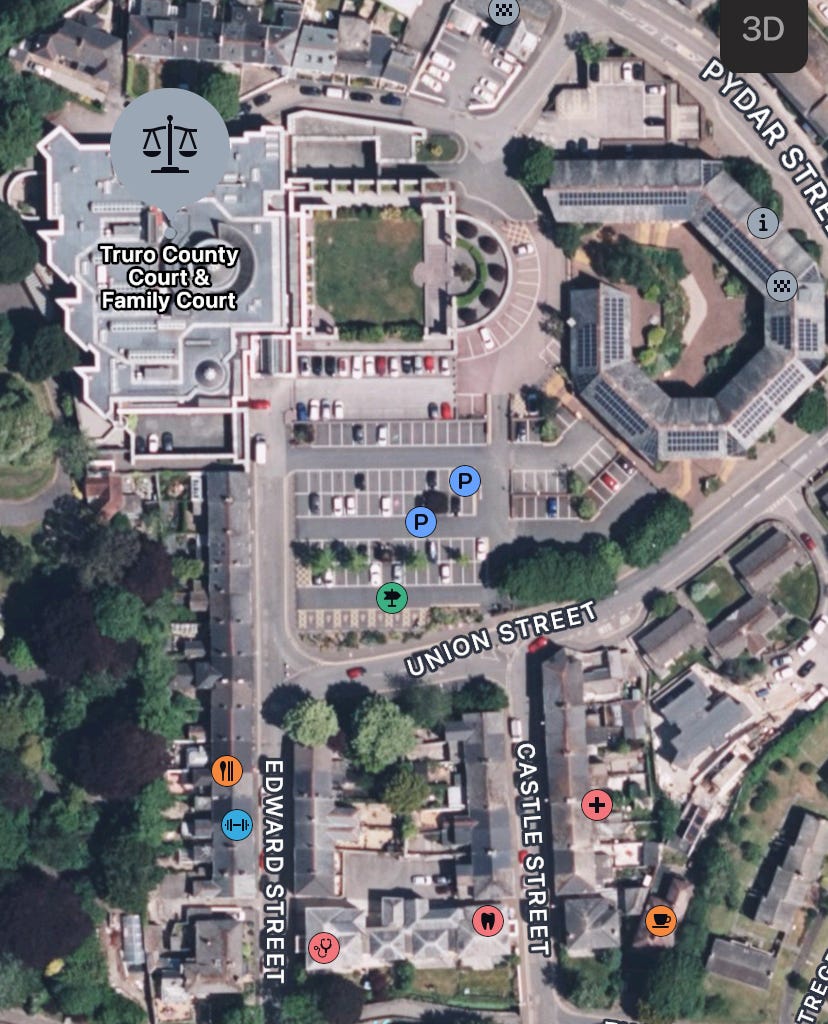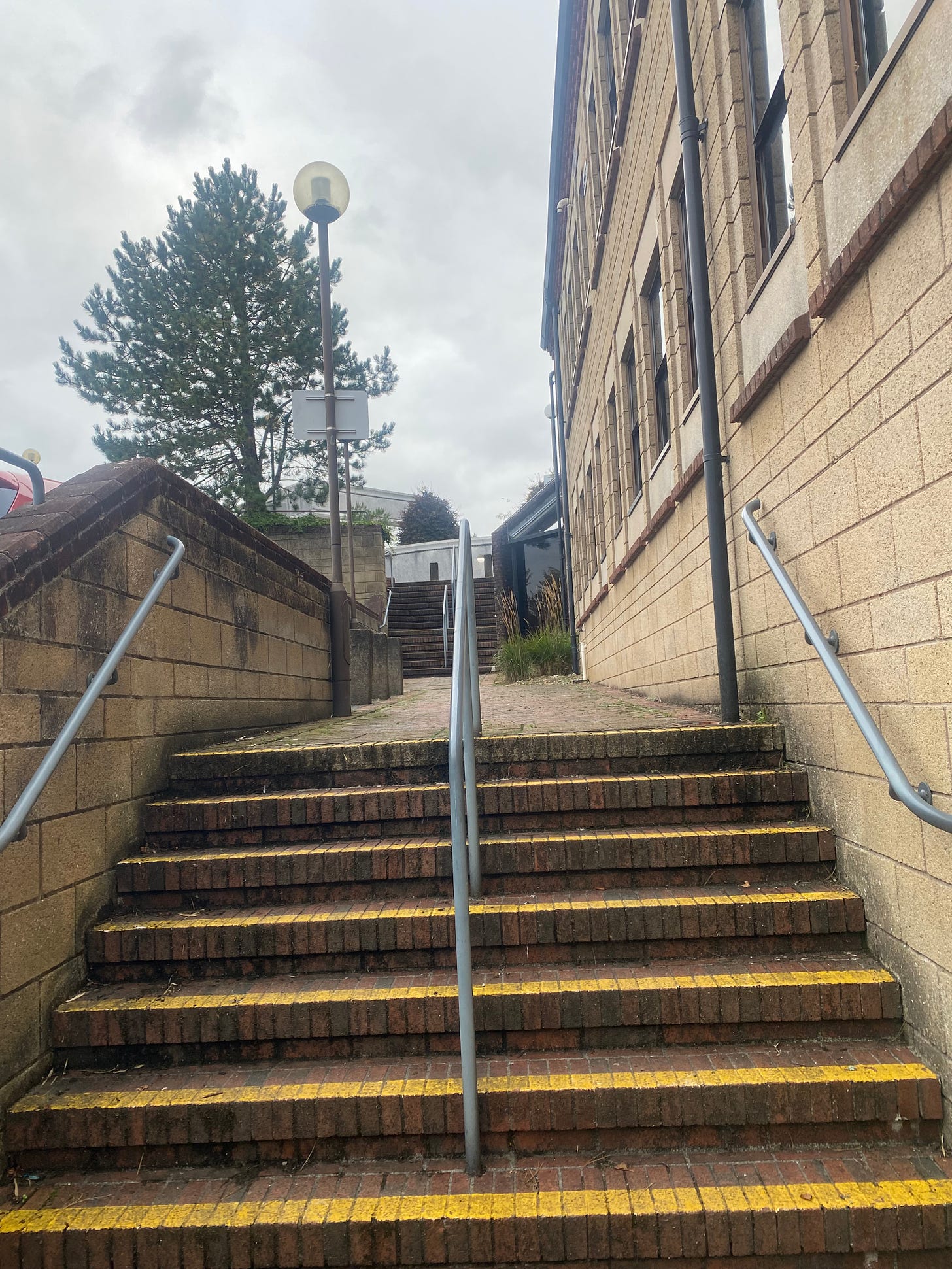Lies, damned lies and statistics
Why do so many react to an argument they don't like with accusations of lies and worse?
The recent proposals of the Bar Standards Board to introduce a positive obligation upon barristers to ‘advance’ equality, diversity and inclusion in their legal practice - or else! - has reminded me that in spite of many encouraging signs of late, we are not yet out of the deep dark woods of EDI. This illuminating podcast on the subject gave me the troubling news that 2 out of the 4 barristers who advise the BSB on such issues are from Garden Court Chambers - who were found to have unlawfully discriminated against one of their own because she did not ‘toe the line’ when it came to gender identity ideology.
Another illuminating and even more alarming podcast which inquired into why we were seeing so many legal actions regarding discrimination in the workplace, suggested that less than 10% of HR professionals understand the Equality Act and staff networks are out of control.
There are three main reasons why I am repulsed by and furious about this drive to ‘enforce’ EDI.
First and invariably, any person or group who wants to impose it, has in mind only their own subjective determination of what it all means. They see such issues through the lens of a very particular ideology, their own pet ‘vampire squid’ of Queer Theory and its noxious tentacles of Critical Race Theory and Gender Identity. They don’t have any genuine commitment to actual inclusion or diversity of course - anyone who thinks differently is ‘far right’ or full of ‘hatred’ and must be stamped out.
The second reason is there is no evidence whatsoever that this focus on ‘EDI’ has had any positive benefit at all. Quite the reverse. The Inclusion at Work Panel final report of March 2024, appointed by the then Business and Trade Secretary and Minister for Women and Equalities, Kemi Badenoch MP, found that
many employers want to ‘do the right thing’ but are implementing EDI initiatives without an evidence base, and many don’t know the impact these initiatives are having or whether they represent value for money. In a growing number of cases, particularly relating to positive discrimination and protected beliefs, the report finds that EDI interventions are proving to be counterproductive or even unlawful.
The third, and the one that infuses me with the most rage, is that subjective performative posturing becomes the end in itself. You can show what a good person and effective ally you are to the LGBTQIA++ community, with very little effort - a badge here, a lanyard there, sprinkle with some pious social media postings, marinade awhile in a warm glow of moral superiority.
But the protected characteristic of disability requires more than performance. To allow disabled people any chance to live in the world, we need equipment and we need access. This costs money and thought. In a world where rights are definitely pie and where resources are definitely finite, there needs to be care as to how we approach the allocation of our time, attention and money.
I make on social media what I think is the relatively obvious point that celebration of trans identities is given far more attention than the actual needs of disabled people and that this risks causing division and resentment, quite apart from diverting resources that would better directed at those with conditions they cannot identify into or out of at will.
My most recent post on September 24th dealt with my visit to Truro Family Court. Its an interesting and imposing building but sadly for me at the top of a very steep hill. I usually resign myself to (slowly) walking up Edward Street and then very carefully down, in a sideways crab motion as I find this a very steep slope.
On the day my phone map suggested I go another way which took me past the council buildings. I was exasperated to see this would mean at least four flights of steps so I tweeted sarcastically that at least I could be cheered up when I got to court by all the colourful Progress Pride flags.
The response to this post was interesting. I was accused multiple times of being a liar from those who seemed to think I was trying to go to the council buildings. I was called a ‘hate monger’. A man continually sent me messages peppered with crying/laughing emojis about how I didn’t seem to know what a hill was. I asked him what he found so funny about disability but he doesn’t appear to as yet have an answer to that. I was called an ‘attention seeker’ and using my disability to get clicks.
I think the reason behind this negativity is that my point has power - and they know it. When I google, I see various accounts of the numbers of disabled people - Scope says its 16 million in the UK including 23% of working age adults. The ONS counted 9.8 million in England in 2021. Disability was identified by the ONS using the following questions,
"Do you have any physical or mental health conditions or illnesses lasting or expected to last 12 months or more?". If they answered yes, a further question "Do any of your conditions or illnesses reduce your ability to carry out day-to-day activities?"
Data from the NHS in 2021 showed that there are approximately 1.2 million wheelchair users, two thirds of which are regular users.
In my entire career, now spanning 30 years, I have met precisely two people in a wheelchairs in a quasi professional capacity- one was a student at Bar School in 1994, the other a McKenzie Friend (non legally qualified supporter of a person attending court) at the Bristol Civil Justice Centre in 2012. On the South East and Western Circuits I have never seen a barrister in a wheelchair or met another barrister with an above knee amputation.
The answer to that is obvious. Because it would be very, very difficult for them to access the courts on circuit. ‘Equality, diversity and inclusion’ ring very hollow when we are asking for substantive action to make buildings accessible.
People with a trans identity numbered about 260,000 in the last census. There has been recent serious concern that the census for England and Wales asked a confusing question which led those with English as a second language to be more ready to identify themselves as ‘transgender’ - apparently 1 in 12 people in Burgess Park in Southwark are trans! That statistic has been downgraded as unreliable but the Scottish census results appear to support a similar finding, that trans identifying people represent about 1 in 200 people. One source from 2022 says there are a further 1.8 million people who identify as gay, lesbian or bisexual in the UK, which mirrors the ONS 2021 statistics of about 1.5 million in England and Wales.
But on any metric we can see that the numbers of disabled people considerably outweigh the members of the LGBTQAI++++ community. Despite our numerical advantage, I have never seen a flag at any train station or any public building ‘celebrating’ disabled people. I have never seen a march for us. I have never seen a public official wearing a lanyard in disabled colours. I have never seen a corporation change its logo for Disability Pride Month. But I have read frequent horrific reports from Dame Tanni Grey-Thompson about how she has to repeatedly drag herself off trains because there are no staff members to help her. I am sure that the colourful Pride liveries of much of our train stock is a comfort to her at these difficult times.
At my local hospital, at every crossing there is a Progress Pride Flag telling me I may ‘cross with Pride’. Sadly on the last occasion I was too busy wheezing to feel very prideful. The (tiny) disabled car park is always full, I have to park down the road and then find the lift to my appointment on the second floor is not working.
I feel very strongly that the focus on one minority group above all others is fostering division and resentment. I would like to see a dedicated effort to moving away from performance and into substance. I think it was a big mistake to subsume disability discrimination legislation into the Equality Act and get rid of the Disability Rights Commission, which was replaced by the Equality and Human Rights Commission in 2007. This has led to the inevitable overshadowing of the immutable, costly and unsexy protected characteristic of disability, by the rather more fluid and glittery ‘gender re-assignment’. This is now apparently to be applied to any fleeting or changeable assertion of ‘gender identity’ and which can be ‘celebrated’ without the need for any pesky actual adjustments to any buildings.
You may of course disagree with what I say. But I struggle to see how this makes me a ‘liar’ - least of all about my own experiences in trying to navigate often very difficult terrain, with an artificial leg, a wheely bag and only 2/3rds of functioning lungs.
And I absolutely deny it makes me ‘hateful’. If you really understand what the words ‘equality, diversity and inclusion’ mean then you will have to accept my right to have, and to express a different view point from yours. The fact that you disagree with what I am saying is insufficient to make me ‘hateful’.
I wish for all to have the best possible life. Any society worth living in has to take into account the needs of its more vulnerable members and provide for them as best as possible. Just don’t wave a Progress Pride Flag at me when what I need is a lift and then tell me I am a hateful, lying bigot if I get exasperated.





Your frustration is palpable and entirely justified, Sarah. My late mother died in 1998. She was disabled by MS. I haven’t observed any real improvement in disability access in the intervening 26 years! You’re also right in stating that the current ‘virtue signalling’ is a cheap and easy option. I’m alarmed that Garden Court Chambers is all over EDI policy like a particularly unpleasant rash.
Aggressive activists are driving the public conversation. Unfortunately a lot of people will simply go along with or even actively support what the most aggressive people say in order to avoid having that aggression turned on them. Actual disabled people are too busy living their lives and dealing with their disabilities to match the aggressive trans activists who make it their whole lives. Until people learn critical thinking, the mob will keep following whoever is the most manipulative.